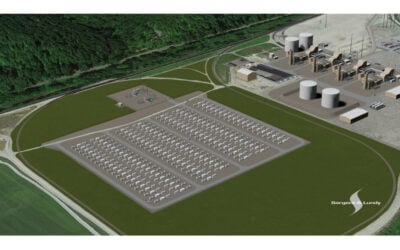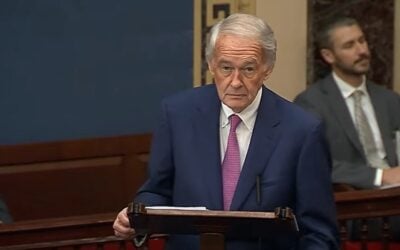German energy giant RWE has ‘frozen’ it’s planned 100MW battery at the proposed Tilbury Energy Centre amidst concerns that the project’s Combined Cycle Gas Turbine (CCGT) would not be able to secure contracts in the UK's forthcoming Capacity Market auctions.
The development had been intended to build out the energy storage facility alongside a CCGT of up to 2.5GW and 300MW of Open Cycle Gas Turbines (OCGT).
Enjoy 12 months of exclusive analysis
- Regular insight and analysis of the industry’s biggest developments
- In-depth interviews with the industry’s leading figures
- Annual digital subscription to the PV Tech Power journal
- Discounts on Solar Media’s portfolio of events, in-person and virtual
However, RWE has put the plans on hold prior to formal consultation in its planning trajectory after it was decided that there was too much competition vying for a place in the upcoming Capacity Market auctions in January and February 2019.
A spokesperson for RWE Generation told Energy Storage News' sister publication Current±: “That seems like a very small market place and there are many more behind that in the planning stages as well. Given that’s where the market is, and the energy centre was a substantially large development, we felt there wasn’t the need for that particular plant.
“[The Capacity Market] is a crucial pathway to enable a large project or scheme such as this to enter the market place, so it was a significant factor in this.”
The Capacity Market is an auction-based mechanism managed by the UK's transmission system operator National Grid to procure capacity reserve for winter peaks. Two separate auctions – T-1 and T-4 – are held each year in order to contract capacity for years ahead.
Although dominated by gas generation, battery storage technologies have been successful since first beginning to access the mechanism in 2016.
This February’s T-4 auction, seeking capacity for 2021/22, cleared at a record low price of £8.40/kW, securing 50.4GW of capacity. With existing gas taking up most of the capacity left by vacated coal plant, the low clearing price is expected to make it much harder for new large-scale gas-fired capacity to come forward in 2019’s auction.
This comes as focus in the market shifts away from capacity towards flexibility, leading to the rise of battery storage and demand side response technologies.
With all of the Tilbury Energy Centre’s constituent parts – CCGT, energy storage and OCGT – included in the planning permissions for the site, C± was told that RWE’s project team “is looking at” what to do with the site now.
This could include submitting new applications to develop just one of the technologies, such as the battery, however it is unclear if the scale of these individual elements will be retained under a new business case.
In a statement released by the company, it said: “The decision to freeze Tilbury Energy Centre has not been taken lightly, it will be a disappointment for those who have been working so hard to get us to the stage we have reached. We would like to sincerely thank the local authorities and community for their support during the past year.
“As always, RWE will constantly explore options for how best to develop our site in Tilbury, which remains a good location for future energy options.”






